Useful Links
Useful links to related websites, with a brief description, can be found in the following section.
The Clinical and Laboratory Standards Institute (CLSI) is a globally recognized not-for-profit standards development organization with over 24,000 individuals with membership access, 1,200 volunteers, and 250+ products. Our standards are recognized by laboratories, accreditors, and government agencies around the world as the best way to improve medical laboratory testing.
https://www.clsi.org (opens in a new browser tab)
Discipline: Laboratory medicine.
The International Society on Thrombosis and Haemostasis, Inc. is organized and operated exclusively for scientific and educational purposes. Its objectives are to foster and advance science relating to the important medical problems of thrombosis and abnormalities of hemostasis and vascular biology; to provide a forum for discussion of these problems; to encourage research on these problems by scientists of the several relevant disciplines; to foster the diffusion and exchange of ideas through scientific meetings and publications; to standardize nomenclature and methods as appropriate and timely.
https://www.isth.org (opens in a new browser tab)
Discipline: Coagulation.
ADLM (Association for Diagnostics & Laboratory Medicine) is a global scientific and medical professional organization dedicated to clinical laboratory science and its application to healthcare. Our leadership in education, advocacy and collaboration helps lab professionals adapt to change and do what they do best: provide vital insight and guidance so patients get the care they need.
https://www.myadlm.org/ (opens in a new browser tab)
Discipline: Chemistry.
Lab Tests Online
AACC, a global scientific and medical professional organization dedicated to clinical laboratory science and its application to healthcare, launched Lab Tests Online in 2001 so that patients and caregivers can learn about the many tests that are a vital part of medical care. The website also recognizes the contributions of the laboratory professional and other essential members of the healthcare team, such as physicians, nurses, and physician assistants. Get quick access to 340+ clinical test articles vetted by experts in the field and other resources that you as a professional may find beneficial.
https://www.labtestsonline.org (opens in a new browser tab)
Discipline: Laboratory medicine.
PubMed Central (PMC) is a free full-text archive of biomedical and life sciences journal literature at the U.S. National Institutes of Health's National Library of Medicine (NIH/NLM). In keeping with NLM’s legislative mandate to collect and preserve the biomedical literature, PMC serves as a digital counterpart to NLM’s extensive print journal collection. PMC was developed and is managed by NLM's National Center for Biotechnology Information (NCBI).
https://www.pubmedcentral.nih.gov/ (opens in a new browser tab)
Discipline: Laboratory Medicine.
Since 1997, the Center for Phlebotomy Education has been providing healthcare professionals and educators around the world with accurate and authoritative information on blood specimen collection procedures. Products and services include videos, newsletters, books, online content, posters, downloads, continuing education exercises, conference presentations, and in-services, all based on the most current CLSI standards.
https://www.phlebotomy.com/ (opens in a new browser tab)
Discipline: Specimen collection and handling.
College of American Pathologists
As the world's largest organization of board-certified pathologists and leading provider of laboratory accreditation and proficiency testing programs, the College of American Pathologists (CAP) serves patients, pathologists, and the public by fostering and advocating excellence in the practice of pathology and laboratory medicine worldwide.
https://www.cap.org/ (opens in a new browser tab)
Discipline: Pathology
The International Federation of Clinical Chemistry and Laboratory Medicine (IFCC) is a worldwide, non-political organization for clinical chemistry and laboratory medicine. As such, it has a range of roles that include (1) global standard setting in collaboration with other international organizations, (2) supporting its members through scientific and educational endeavor, and (3) providing a series of congresses, conferences and focused meetings in order for laboratory medicine specialists to meet and present original findings and best practice.
https://www.ifcc.org (opens in a new browser tab)
Discipline: Clinical Chemistry, Lab Medicine.
The International Standards Organization is an independent, non-governmental international organization with a membership of 165 national standards bodies. Through its members, it brings together experts to share knowledge and develop voluntary, consensus-based, market relevant International Standards that support innovation and provide solutions to global challenges. The link below provides more information on the organization.
https://www.iso.org/home.html (opens in a new browser tab)

